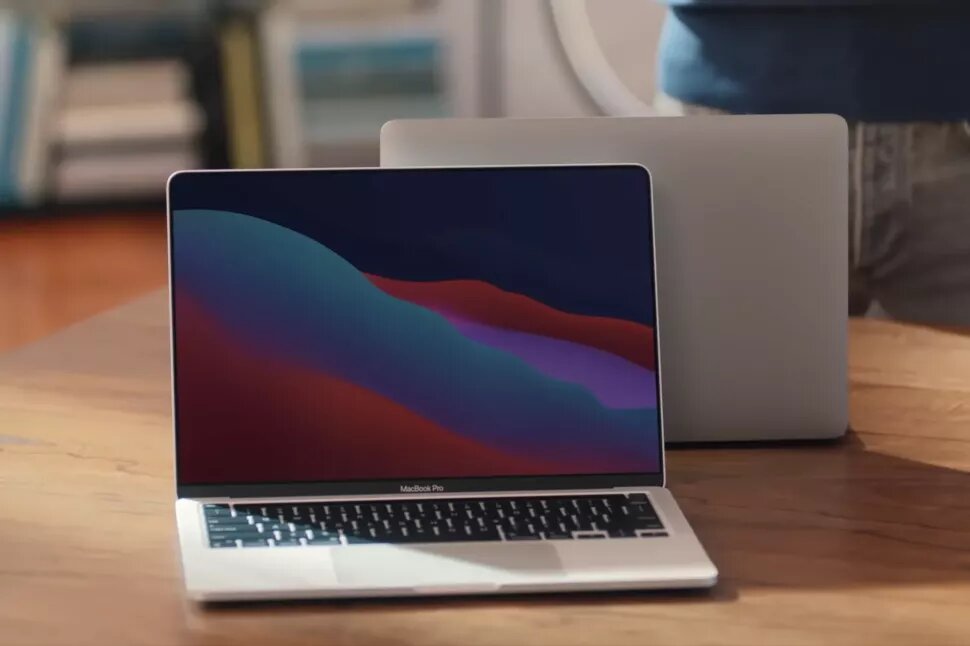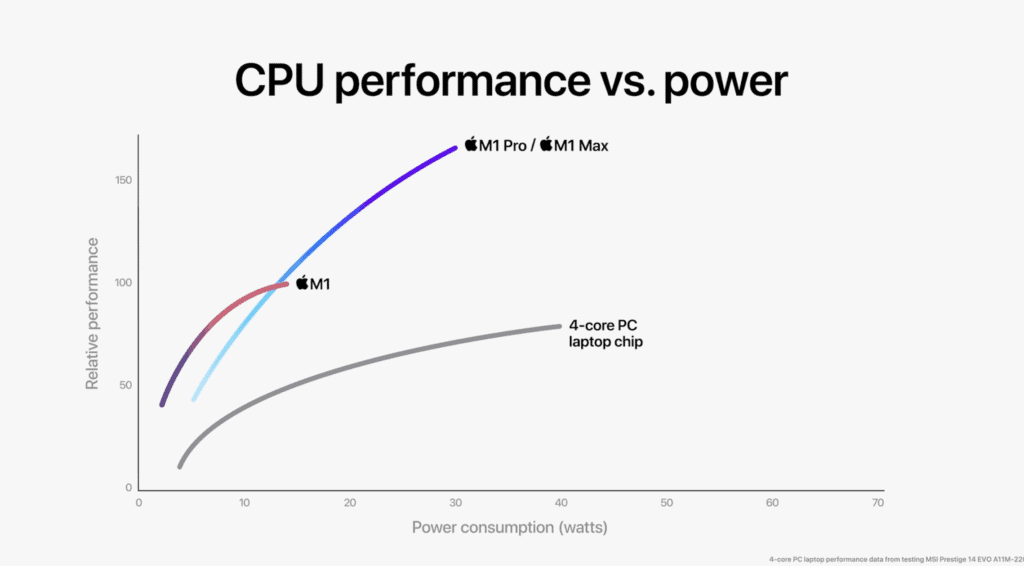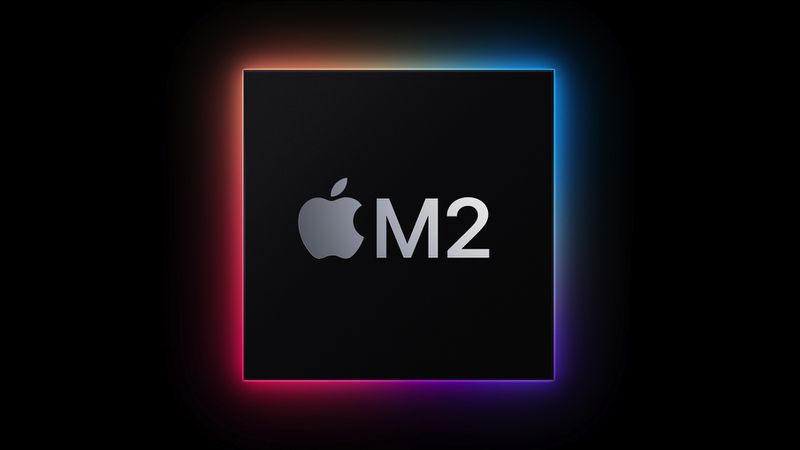Apple is developing a next-generation version of the M1 Apple silicon chip, which will be called the “M2.” The M2 is believed to be shipping in 2022, and current rumors suggest that it could be a replacement for the M1 that’s destined for next-generation MacBook Air models.
What We Know
Apple in October 2021 announced the M1 Pro and the M1 Max, its newest Apple silicon chips that are used in the 14 and 16-inch MacBook Pro models. The M1 Pro has up to 10 CPU cores and up to 16 GPU cores, while the M1 Max has a 10-core CPU and up to 32 GPU cores.
The M2 is the next-generation version of Apple silicon, and the first M2 chip will succeed the M1 chip. It will not be as powerful as the M1 Max and the M1 Pro, but it will be more powerful than the M1, the chip that it is designed to replace.
The M2 is expected to have the same 8-core CPU as the M1, but there will be speed and efficiency improvements as it may be built on a smaller node.
It is expected to have additional GPU cores, with 9 and 10-core GPU options, up from the 7 and 8-core GPU options in the original M1 chip.

Release Date
New information suggests that Apple has an 18-month cycle in mind which means that Macbook Airs with M2 chips could see the light of day in mid-2022.
The currently available M1 MacBook Pro 13 will be replaced with a MacBook Pro 14 with an M2 chip in the 2H of 2022. It will receive a slight price increase over the previous generation. Alongside this release time frame, we will receive the redesigned M2 MacBook (Air).
Dylan (@dylandkt) January 17, 2022
As seen in this tweet above, the new MacBook Pros will have an M2 chip which should release in 2H of 2022.
Specifications
Certain leaks state that the 4nm or 5NP process could bring an increase of GPU cores (from 8 to 32+), and a new maximum memory (64GB RAM).
The M1 Max comes with 10 cores which is already better than the 8 cores in the M1, so the M2 could probably reach 12 cores or more.

Performance
If the M2 processors are based on the 5NP architecture process, the same one used for the A15 Bionic chips in the iPhone 13, we can make some estimates about the performance.
So, if the A14 Bionic is on a 5nm process and the A15 is on an upgraded 5nm architecture with a performance difference of up to 20%, it’s possible that we’ll see a similar story between the M1 and M2 processors.
Many other tech websites are making this comparison because the M1 chip is on the same architecture the A14 chip is based on.
Let’s have a look at this benchmark from XDA-Developers:

Price
Here is the pricing of last-generation (M1) devices:
- MacBook Air M1 – $999 (up to $2,049)
- MacBook Pro 13-Inch M1- $1,299 (up to $2,299)
- iPad Pro 11-Inch M1- $799 (up to $2,099)
- Mac Mini M1- $699 (up to $1,699)
We can assume the same price pattern for the M2 generation. However, it also wouldn’t be unexpected for Apple to push for higher pricing for all devices equipped with M2.
If Apple continues this trend, getting the high-end M2 chips in the 2022 MacBook Air could cost more than $1000.
The M2 will be great, we have no doubt about that, but just a year later we could see something even better that will bring an even more massive leap in performance compared to the current generation.













